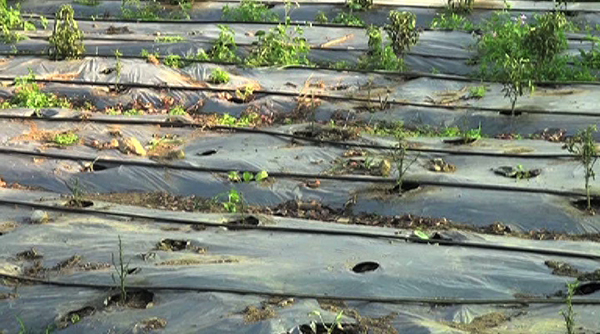 Although the use of pesticides is widely discouraged, farmers of Sarpang feel the agriculture extension offices in the gewogs should keep its stocks ready. They say, now, with most of them into mass commercial farming, controlled use of pesticides could be necessary in future. And they fear it may not be available when required.
Although the use of pesticides is widely discouraged, farmers of Sarpang feel the agriculture extension offices in the gewogs should keep its stocks ready. They say, now, with most of them into mass commercial farming, controlled use of pesticides could be necessary in future. And they fear it may not be available when required.
Today, most Sarpang farmers do not use pesticides while growing vegetables. However, as they increase their production, they feel it could be necessary. Moreover, their indigenous methods are slowly becoming ineffective in controlling pests from infesting their crops.
“We did not receive any pesticide as of now and we don’t know how to make pesticides at home. It would be beneficial if we could get some pesticides,” said Hari Prasad Katel, a farmer in Sarpang.
“They advised us to throw away insects infesting our crops far from our farms. The locally-made pesticides are not so effective. If the extension centre supports us with imported pesticides, it would benefit us,” added Leela Maya Dihmal.
“Last time, our agriculture extension officer told us to spray pesticides if pests attack our crops. But as of now, it did not happen. We didn’t go to seek advice on what to do next,” said Chandra Lal Ghimiray.
The Agriculture Research and Development Center in Samtenling Gewog says pesticides are imported into the country only once a year and that too, based on the demand from the extension centers. The requisition is submitted to the National Plant Protection Center through respective district agriculture sector.
“In absence of a disposal site for excess pesticides, we do not import more than what is required. For the same reason, farmers have to place orders for whatever is required in a year,” said C.M. Dhimal, from the Agriculture Research and Development Center in Sarpang.
He said, generally, farmers are discouraged from using pesticides in their farms. But if at all necessary, they are advised to use it judiciously as it could contaminate soil, water and the surrounding vegetation. Also, in the long run, pests could develop resistance against the chemicals.
Meanwhile, the Center is also doing research on a bio-pesticide using a mixture of garlic, soap, mustard and Indian lilac oil, commonly known as neem oil.
Karma Wangdi, Sarpang












